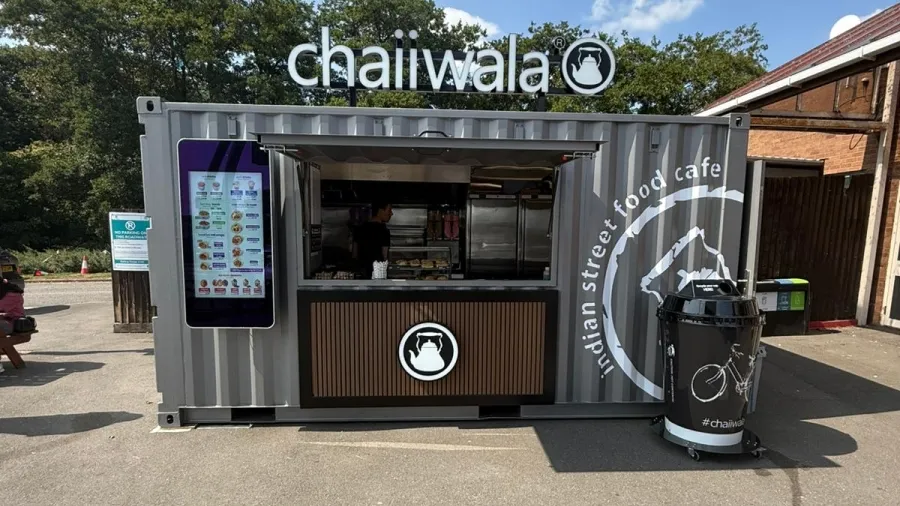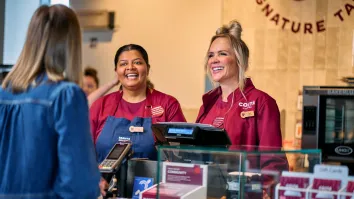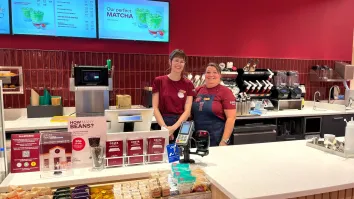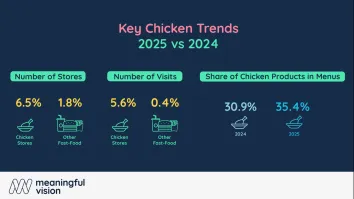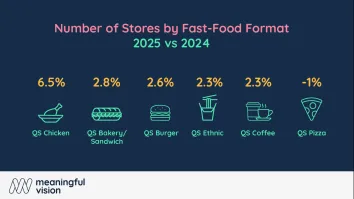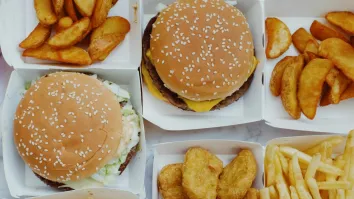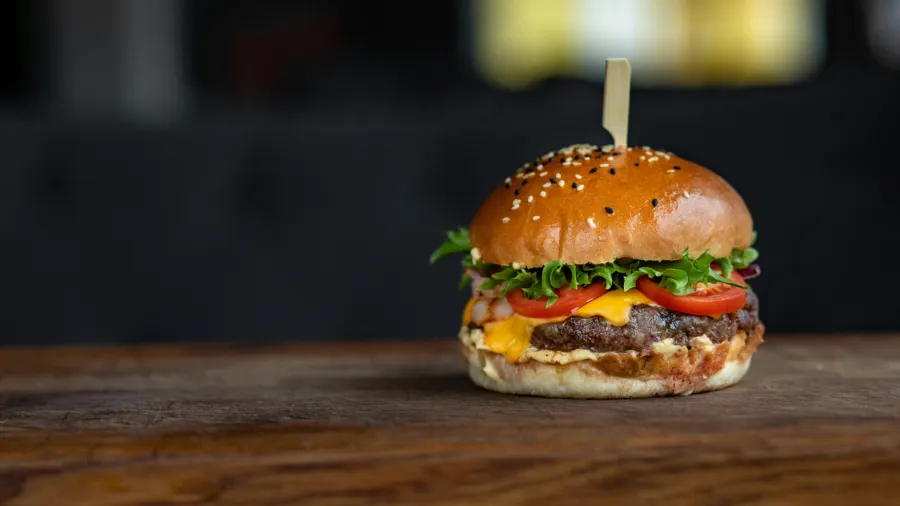
What's in store for the QSR industry in 2025?
QSR industry execs and other industry experts weigh in on restaurant trends.
The UK’s quick-service restaurant (QSR) industry experienced a transformative year in 2024, marked by heightened competition, evolving consumer expectations, and economic pressures. Brands responded by leveraging technology, focusing on customer loyalty, and adapting to new regulations, setting the stage for intense competition and innovation in 2025.
The industry saw significant shifts in consumer behaviour, driven by the growing influence of aggregator platforms such as Deliveroo and Uber Eats, which heightened expectations for convenience and speed.
A report by Mintel revealed that despite the cost of living crisis eight in 10 Brits still indulge in deliveries and takeaways
“Aggregator platforms continue to gain market share, offering customers convenience and choice,” said Chris Phylactou, Managing Director of Papa John’s UK. “This increasing saturation makes it harder for brands to stand out.”
Papa John’s emphasised loyalty programs and advanced customer relationship management (CRM) systems to address these challenges, resulting in a 24% uplift in transactions through personalized marketing efforts.
Similarly, Chipotle launched its UK app to cater to the growing demand for convenience
“The app helps us increase access to our restaurants in high-footfall areas and positions us as a convenient dining destination for families,” Ben Williams, Managing Director of Europe for Chipotle said.
Meanwhile, Doner Shack founders Sanj Sanghera and Laura Bruce believe that the need for speed will be highly valued. This means there is a need for advancements in ordering technology, such as kiosks and mobile apps, which are revolutionising convenience and speed, aligning with customers' increasing expectations for quick and personalised service.
The two suggest that by embracing AI and advanced technology, brands can stay ahead of the curve.
“For example, at Doner Shack, we use cutting-edge robotic kebab cutters to streamline operations, reduce waste and ensure perfectly sliced meat every time – giving our brand a competitive edge that sets us apart from others,” Sanghera said.
“Additionally, at Doner Shack, our menu proposition differentiates us from brands that are only focusing on developing chicken and burger products. By selling unique food items, we avoid the risk of drowning in an over-saturated market – particularly in the UK, where our brand has the potential to operate successfully across diverse locations,” Bruce added.
These initiatives underline the industry’s drive to leverage technology to enhance the customer experience.
Meanwhile, the QSR sector also faced mounting economic pressures in 2024, with the increase in National Insurance Contributions and inflationary challenges reshaping operational priorities.
Labour costs are expected to rise by 10%, according to UK Hospitality, potentially increasing prices across the industry by 1% to 4%. “The recent increase in National Insurance Contributions will have a material impact on the industry,” Phylactou said. Papa John’s responded by focusing on menu innovation and operational efficiency. The brand is also working closely with franchisees to tackle economic pressures collaboratively.
Williams emphasised Chipotle’s commitment to educating UK consumers about its value proposition, including its use of real ingredients without artificial additives, to differentiate itself amidst rising costs.
Regulatory changes are also on the horizon. The impending high fat, sugar, and salt (HFSS) advertising restrictions, set to take effect in October 2025, pose a significant challenge. “Whilst the industry awaits greater clarity, we’re not standing still,” Phylactou noted. Papa John’s has invested in research and development to create compliant advertising strategies and products.
Looking ahead, the QSR industry is poised for intense competition, with brands focusing on technology, menu innovation, and geographic expansion.
“The next big arena for competition will revolve around technology and customer-centric innovation,” Phylactou said, pointing to the brand’s AI-powered deals platform as a key driver of loyalty. Menu innovation remains a cornerstone for many QSRs.
Chipotle plans to elevate its culinary offerings and introduce limited-time menu items to attract new customers. Williams stressed the importance of brand awareness, adding, “We will continue to grow our presence in the UK by focusing on healthy and sustainable food options.”
The competitive landscape also extends to promotions. Maria Vanifatova, CEO of Meaningful Vision, observed a shift in promotional strategies. “Many meal deals are now positioned as budget-friendly options to retain customers at any price point. Value promotions and day-part-specific deals will remain popular in 2025.”
Despite challenges, the QSR industry is better positioned than other segments, such as casual dining, to weather economic uncertainties.
With a lower share of labour costs and greater capacity for business optimization, QSRs have significant advantages. Vanifatova noted, “If the economic environment remains tough, fast food may even gain traction as some consumers shift away from casual dining.”
On the other hand, mergers and acquisitions (M&A) also present opportunities. James Scallan, Managing Director at Houlihan Lokey, predicts a resurgence in dealmaking as inflation cools and interest rates stabilise.
“Lower interest rates would make leveraged buyouts more attractive, unlocking more opportunities for growth,” he said, highlighting strong demand for snacking and frozen foods. In the beverage sector, functional and sustainable products are expected to drive activity. “We anticipate growing buyer interest in functional beverages as consumers prioritize healthier, better-for-you alternatives,” said Javier Chiquero, Vice President at Houlihan Lokey.
The QSR sector in 2025 is set to navigate a complex mix of challenges and opportunities. Brands are poised to adapt to economic pressures, regulatory changes, and shifting consumer behaviours through innovation and strategic growth.
“Those who adapt swiftly will lead the next wave of growth,” Vanifatova concluded.

